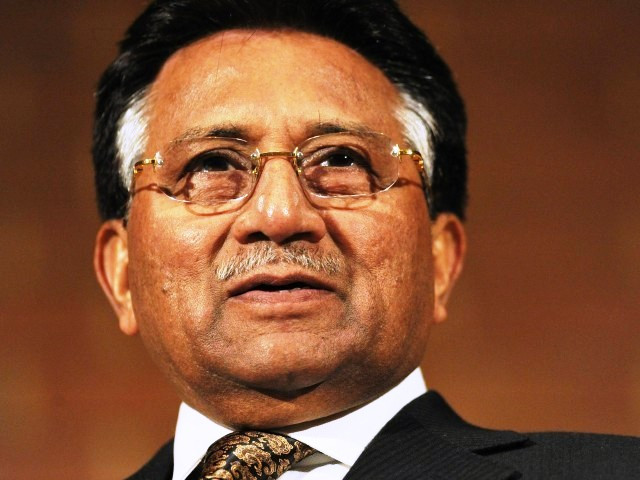Prime Minister Gilani said at the National Assembly session to leave former president Pervez Musharraf to himself and let him exercise his right to a political career in Pakistan. President Zardari said that if Musharraf wants to return, he will have to cross the same bumpy road as him to get to the presidency or premiership. Nawaz Sharif, Chaudhry Shujaat and the remaining politicians, including religious parties, want him tried for treason, Dr Aafia’s case and introducing extremism in the country.
Since the launch of his party on October 1, Musharraf has been on a political offensive. He has talked about the deal with Nawaz Sharif and Benazir Bhutto. He has also reportedly accepted that the military trained jihadis to force India to the discussion table to resolve the Kashmir issue - a statement which he has now backtracked from.
His opinions and speeches have led most of his opponents to start wondering what he’s been smoking!
However, these are just some of the achievements of the man when he was in and out of uniform.
1. Nine world class engineering universities were developed and 18 public universities further developed.
2. Pakistan was ranked third in world banking profitability.
3. The IT industry was valued at around $2 billion, including $1 billion in exports and employed around 90,000 professionals.
4. The CNG sector attracted over $70 billion in investment in the past five years and created 45,000 jobs.
5. The telecommunications sector attracted around $10 billion in investments and created over 1.3 million jobs.
6. Industrial parks were set up throughout the country for the first time.
7. Mega projects such as the Saindak, Rekodiq, marble production, coal production, mining and quarrying were pursued.
8. Foreign reserves increased from $700 million to $17 billion.
9. The Karachi stock market went from 700 points to 15,000 points.
10. The literacy rate improved by 11 per cent.
11. Poverty decreased by 10 per cent.
12. Four dams were built: Mirani, Subakzai, Gomalzam, Khurram, and Tangi,
13. Seven motorways were completed or were under construction,
14. Gwadar, an advanced sea port, was developed,
15. 650 kilometres of coastal highways were constructed.
16. A historic 100% increase in tax collection (amounting to Rs1 trillion) was observed.
17. Large scale manufacturing was at a 30-year high, and construction at a 17-year high.
18. Copper and gold deposits were found in Chagai, worth about $600 million annually if sold.
19. A new oil refinery with the UAE that could process 300,000 oil barrels a day was established.
20. The industrial sector registered 26 per cent growth.
21. The economy was the third fastest growing economy after China and India .
22. The Institute of Space Technology was established.
23. Sardar Bahadur Khan Women University Quetta was established.
24. The University of Science and Technology, Bannu, was established.
25. The University of Hazara was founded.
26. The Malakand University in Chakdara was established.
27. The University of Gujrat was established
28. The Virtual University of Pakistan was established
29. Sarhad University of IT in Peshawar was established
30. The National Law University in Islamabad was established
31. The Media University in Islamabad was established
32. University of Education in Lahore was established
33. Lasbela University of Marine Sciences, Baluchistan, was established
34. Baluchistan University of IT & Management, Quetta (2002)
35. The Pakistan economy was worth $ 160 billion in 2007
36. GDP Purchasing Power Parity (PPP) was $ 475.5 billion in 2007
37. The GDP per Capita in 2007 was $ 1000
38. Revenue collection in 2007/08 was Rs1.002 billion
39. Exports in 2007were worth $18.5 billion
40. Textile exports in 2007 were worth $11.2 billion
41. Foreign direct investment in 2007 was $8.5 billion
42. Debt servicing in 2007 was 26 per cent of the GDP
43. The poverty level in 2007 was 24 per cent
44. The literacy rate in 2007 was 53 per cent
45. Pakistan development programs in 2007 were valued at Rs520 billion
46. The Karachi stock exchange in 2007 was $70 billion at 15,000 points
47. Exports in 2007: $18.5 billion
48. Pakistan now has a total of 245,682 educational institutions in all categories, including 164,579 in the public sector and 81,103 in the private sector, according to the National Education Census (NEC-2005).
49. There are now more than 5,000 Pakistanis doing PhDs in foreign countries on scholarship. 300 Pakistanis receive PhD degrees every year, in 1999, the number was just 20.
50. In total, 99,319 educational institutions increased in Musharraf’s era!
This was some of the good Musharraf delivered to Pakistan during his martially-democratic rule from 1999 to 2008. Strange how quickly we forget his foreign policy efforts, which helped elevate the image of Pakistan globally added acceptance value to our green passports. Even the Indians next door were ready to discuss Kashmir for a solution and praised the man for his sincerity, honesty and amicable handling of the issues.
Of course, he has the right to tell his opponents, “tameez say baat karo, warna munh toor jawab millayga” and it is true that most of them are keeping quiet since he said this in a recent interview with Express TV.
I feel he knows more than what he has already said so far, and may explode if not “handled with caution”. This goes for all the politicians cum armed forces of Pakistan. Hence, be careful everyone, the General is coming back as a civilian!
50 reasons Pakistan needs Musharraf
Musharraf did a world of good for Pakistan during his rule, from the economy to education. He may not be perfect but he knows how to handle power.



COMMENTS
Comments are moderated and generally will be posted if they are on-topic and not abusive.
For more information, please see our Comments FAQ